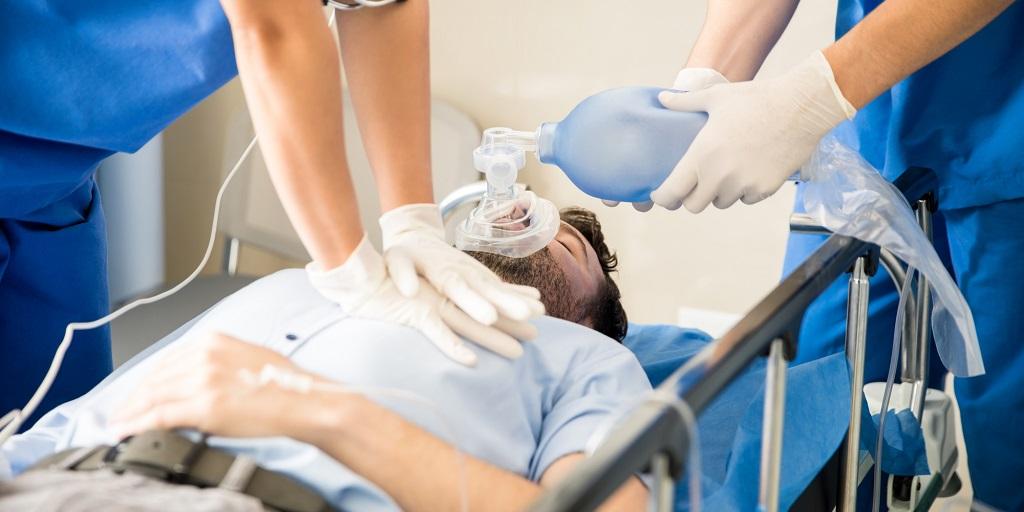Health News Roundup: Defibrillator vest fails test, new anti-HIV treatment and more

Following is a summary of current health news briefs.
Survival after cardiac arrest may depend on which EMS agency shows up
Whether you survive a cardiac arrest may depend, at least in part, on which emergency medical services agency shows up to treat you, a new study suggests. Researchers found a wide variation in cardiac arrest survival rates depending on which EMS agency provided initial treatment, according to the study published in JAMA Cardiology.
Defibrillator vest fails test because many heart attack survivors wouldn't wear it
Patients who have just survived a heart attack and consequently have a dangerously-weak heart face a high risk of sudden death. Giving them a wearable defibrillator that can restart their heart doesn't improve their odds, according to the formal findings of a new study of 2,302 volunteers. But the results, published in Thursday's New England Journal of Medicine, show that many people given the heart-shocking vest declined to wear it.
Alnylam's gene-silencing drug shows efficacy in late-stage trial
Alnylam Pharmaceuticals Inc said on Thursday its gene-silencing drug for a rare, painful genetic disease was found to be effective in a late-stage trial, putting the firm on track for a faster approval from U.S. regulator. The drug, givosiran, showed significant reduction in urinary aminolevulinic acid in patients with acute hepatic porphyria, the company said, citing interim data from the trial.
Anti-HIV antibody treatment promising in early experiments
People living with HIV might someday be able to combat the virus with twice-a-year infusions of anti-HIV antibodies instead of daily antiretroviral pills, two preliminary experiments suggest. The studies were extremely small - just seven patients in one, and nine in the other. And they only show that the anti-HIV antibodies have potential, not that they actually work. Larger, longer trials are needed to see whether this new treatment is safe and effective. Even then, it might take years for a new medicine to reach the market.
UK healthcare worker contracts rare monkeypox virus in third case
A health worker in northern England has become the third person in Britain to contract a rare illness caused by a monkeypox virus after caring for a patient infected with the disease following travel to Nigeria, health officials said on Wednesday. The latest patient had been involved in caring for another case at Blackpool Victoria Hospital before monkeypox was diagnosed, Public Health England said in a statement.
Jail birds: Thailand considers prison for feeding pigeons
The Thai capital is considering jailing people who feed pigeons in public to try to eliminate the risk of bird flu and other diseases, officials said on Wednesday. The Bangkok Metropolitan Administration is spearheading a campaign to catch pigeons and has vowed to impose a ban on feeding them - violators could be jailed for up to three months, face a 25,000 baht ($770) fine, or both.
Heavy drinkers and teetotalers alike may have heightened dementia risk
Middle-aged adults who avoid alcohol altogether, and those who consume the equivalent of seven glasses of wine or more a week are both more likely than light drinkers to develop dementia in their later years, a long-term study suggests. With heavy drinking, the increased risk of dementia may be directly caused by nutritional deficits and the toxic effects of alcohol in the brain, and indirectly caused by disorders that are common among heavy drinkers like diabetes, high blood pressure and stroke, said lead study author Severine Sabia of Paris-Saclay University in France and University College London in the UK.
Aetna, seeking antitrust nod, sells Medicare drug business to WellCare
Health insurer Aetna Inc said on Thursday it will sell its standalone Medicare prescription drug plan business to WellCare Health Plans Inc as it seeks U.S. antitrust approval for a planned acquisition by CVS Health Corp. The $69 billion CVS-Aetna deal would be the second large deal this year between insurers and pharmacy benefit managers, a consolidation the companies say will help rein in rising U.S. healthcare costs.
China detains four for transporting pigs amid swine fever outbreaks
Inner Mongolia in northern China has detained four people for forging documents and illegally selling and transporting pigs from a province that has been hit by African swine fever, said the region's animal husbandry bureau late on Wednesday. This comes after a slaughterhouse in the capital Hohhot discovered four pigs infected with the highly contagious disease that has been spreading rapidly across the world's top pork producer since its discovery in August.
U.S.-Cuban biotech venture created to bring new cancer therapies to USA
U.S. and Cuban research institutes said on Wednesday they were creating the first joint U.S.-Cuban biotech venture to be headquartered on the Communist-run island to bring new cancer therapies to U.S. patients. The Innovative Immunotherapy Alliance SA is the fruit of a three-year partnership between the Roswell Park Cancer Institute of Buffalo, New York and Cuba's Center for Molecular Immunology begun following the historic 2014 U.S.-Cuban detente.
(With inputs from agencies.)
ALSO READ
U.S. Coast Guard Pursues Sanctioned Venezuelan Oil Tanker
U.S. Coast Guard's High-Stakes Pursuit of Sanctioned Oil Tanker Escalates Tensions
U.S. Coast Guard Escalates Pursuit of Sanctioned Oil Tankers
High Seas Tension: U.S. Coast Guard Targets Venezuela's Sanctioned Oil Tankers
High Seas Tensions as U.S. Coast Guard Targets Venezuelan Oil Tanker










